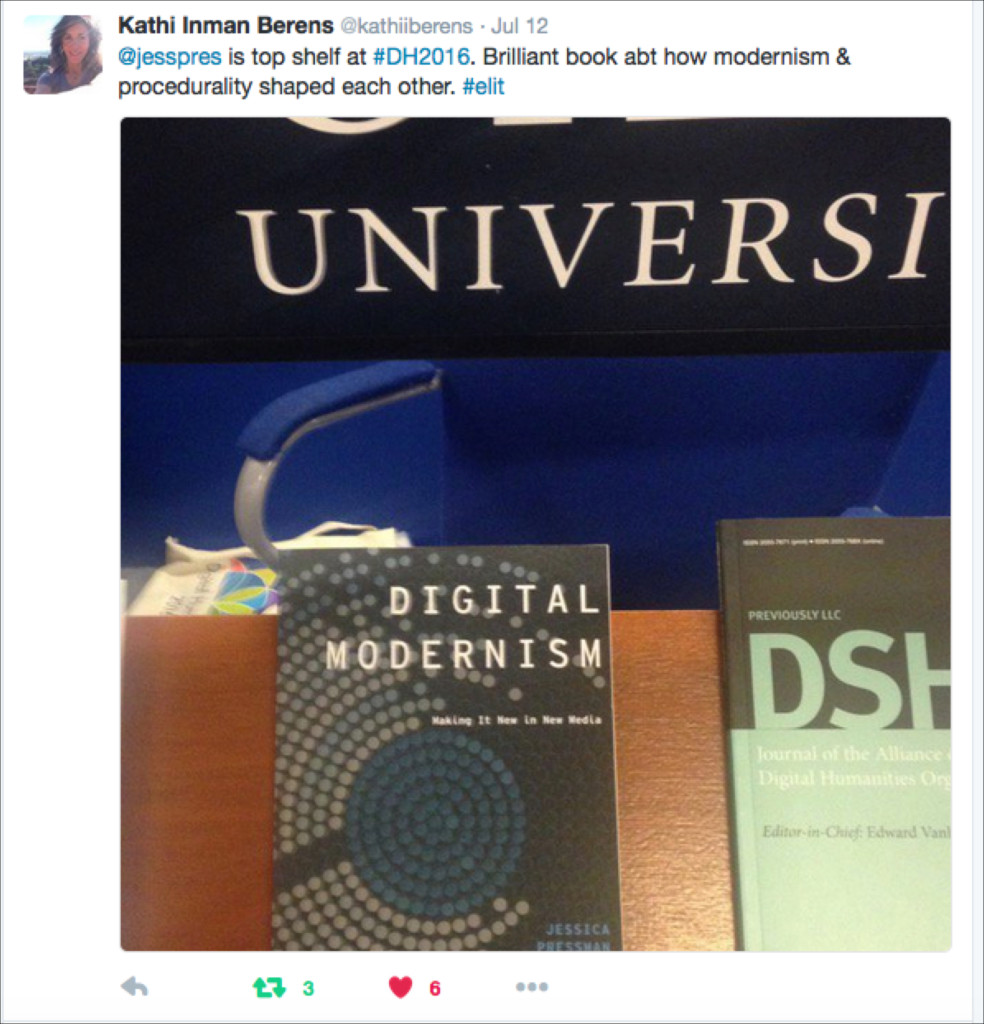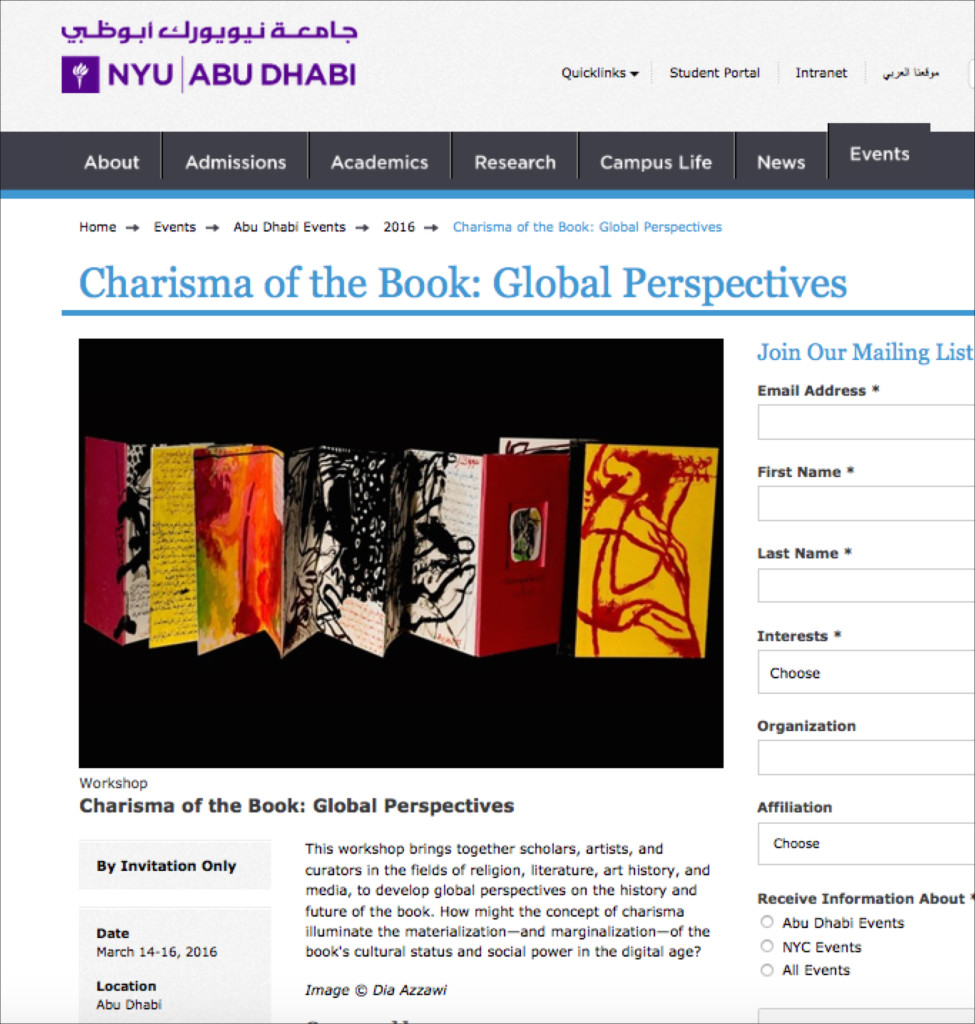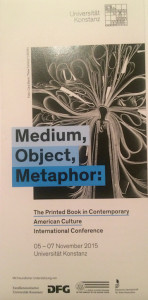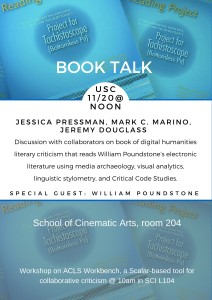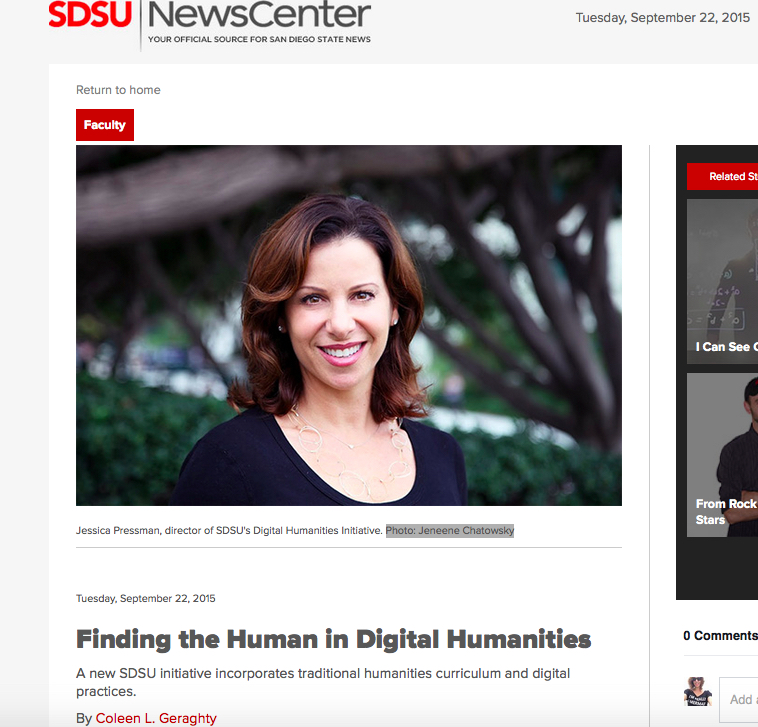Being an “invited speaker” at https://othercodes.wordpress.com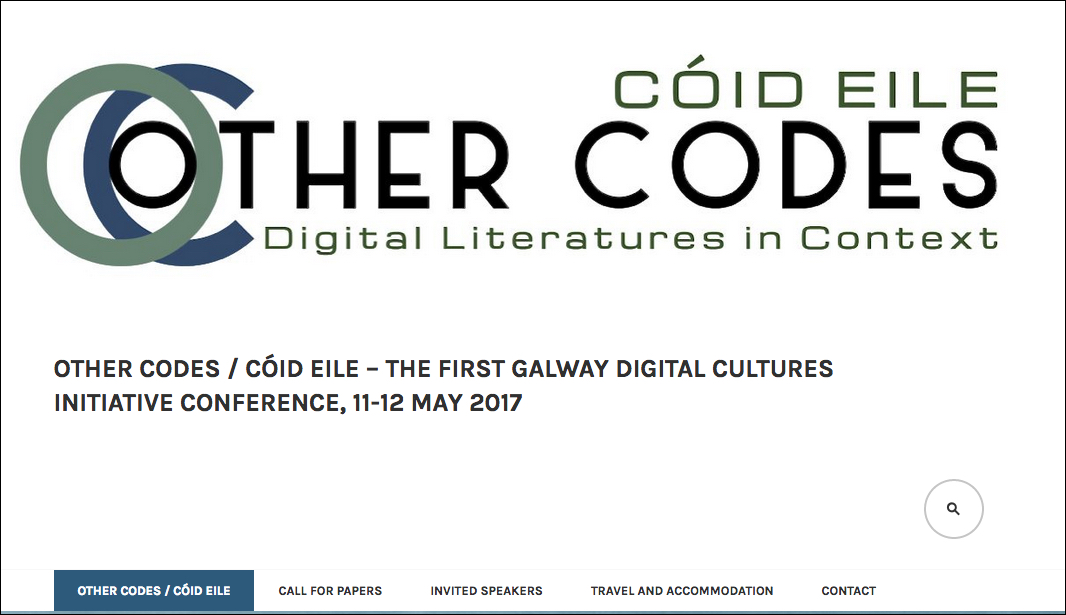
Great new review of Digital Modernism
Jenn Phillis, writing at electronic book review, really gets what I’m after in Digital Modernism. She writes, “The question at the heart of Digital Modernism is why we read literature, especially difficult literature, at all.” Yep.
She is also one of the only reviewers to focus on my writing about Erik Loyer’s wonderful Chroma, a story about the quest for a universal language in which “the fantasy of universal language is revealed to be fundamentally anti-universal, itself encoded with specific ideas about race, gender, culture, and class.”
I am grateful to this reviewer for seeing an ethical dimension in my book:
“Digital Modernism reveals that even the most innovative contemporary works of digital literature wrestle with what some might see as old-fashioned questions: what constitutes communication? How does representation work? Or, more basically, how did this artist manage to put this thing—this difficult, inscrutable thing—together, and why did she do it? Our profession should—as Pressman does throughout Digital Modernism—refuse to subordinate these aesthetic questions to utilitarian measures and remember that reading, writing, and repeating all take critical stances toward contemporary culture and politics.”
Truly honored to have found such a good and generous reader.
Digital Modernism at DH2016
Book Award!
Very proud that Reading Project won the Electronic Literature Organization’s “N. Katherine Hayles Award for Best Literary Criticism on Electronic Literature,” 2016. Yay!
Looking forward to this…!
Review of Reading Project
An incredible review of our new book, Reading Project: A Collaborative Analysis of William Poundstone’s Project for Tachistoscope {Bottomless Pit}, by the incomparable Alan Liu (UCSB):
To my knowledge, it is the only work to date in the new media
studies/digital humanities area that provides a full methodological
paradigm (and case example) for how to "read" contemporary creative works
of digital media through interwoven analysis of all the levels of digital
phenomena from code (source and compiled) through interface to
traditionally interpretable textual/visual "meaning" or "narrative." *Reading
Project* pursues each of these types of analysis with a degree of rigor and
invention that makes it state-of-the-art in the field. For instance, the
analysis through visual modeling techniques (for which Jeremy is
principally responsible) marks the leading edge of digital visualization
methods.... Similarly, the code analysis of the decompiled Flash code
animating William Poundstone's *Project for Tachistocope* (the specific
work of electronic literature that Reading Project takes as its case study)
is state of the art because its principal contributor, Mark Marino, was one
of the original innovators in the field of "critical code studies." And in
the same vein, the "traditional" analysis of textual and visual meaning in
Poundstone's avant-garde work led principally by Jessica Pressman rivals
the very best of so-called "close reading" in modern literary
interpretation, but in a new key informed by the hermeneutics of
visualization data-mining and code analysis. There simply is no other
extant work that combines these reading methods in one organic paradigm,
let alone demonstrates them with detail, rigor, and brilliance in the
reading of a specific digital work.
In general, I note, much recent debate among literary scholars (and
other humanists) confronted with digital new media and the digital
humanities has bruited the supposed contrast between an older mode of
"close reading" and the new digitally-enabled "distant reading"
(data-mining and text-analysis modeling of datasets rather than individual
works). Through explicit methodological argument and also by example, *Reading
Project* persuasively shows that the binary terms of the debate are false.
As the authors argue, their variety of analytical reading methods adapted
to new media allows them to "zoom in" and "zoom out" so as to inextricably
bind close reading to distant reading. *Reading Project* is an original,
substantial, and important contribution to the study of creative digital
works in the humanities. The book makes a compelling case for how all
digital work--creative or not, in the humanities or not--must henceforth be
studied."
In Konstanz, Germany
Excited for this conference to begin tomorrow!
Upcoming talk at USC
I’m excited about the following event… a long time in coming.
Book talk and roundtable with me, Mark Marino (USC), and Jeremy Douglass (UCSB)–my two friends and co-writers– about our recently-published co-written book of digital humanities literary criticism, Reading Project: A Collaborative Analysis of William Poundstone’s Project for Tachistoscope {Bottomless Pit} (Iowa UP 2015)
William Poundstone, author of Project for Tachistoscope {Bottomless Pit} (the work of digital literature that we analyze in our book) and author of fourteen print books of nonfiction who has been twice nominated for the Pulitzer Prize, will join us.
NEH-sponsored Workshops tomorrow!
Finally, the workshops I have been planning (with generous support from The Office of Digital Humanities at the National Endowment for the Humanities) are here!
Tomorrow, 30 faculty members from 7 institutions in San Diego will meet at SDSU to build a regional network of support for teaching digital humanities.
Check out our website and watch us go/grow!

